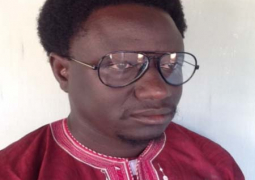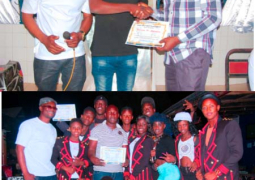According to its director, Shaka Ceesay, Conscience International (CI) is a non-profit, non-political and non-religious organisation, that’s committed to achieving social and economic justice. CI promotes the rights of people to fully participate in the social, technical, environmental and economic decisions that affect their lives.
The training was centred on techniques of collaboration with donors, how to maintain credibility in their operations, and how to utilise the media for visibility purpose, as means of public outreach.
According to him, participants were drawn from various fields of specialisation within the Non-Governmental (NGOs) and Charitable Organisations communities, engaging in among others, promoting various rights, such as disabilities, youth, children,gender, environmental and climate change related advocacy,capacity-building activities, media, HIV among others.
He also called on participants to develop and nurture passion in whatever they do, without which he noted, they cannot do what they want.
He also expressed the need to build partnership, as he stated, single individual cannot make it alone, emphasising that “good relation with colleagues at workplace and the society is fundamental for any sustainable activity.
He said contents of proposals, and the credibility of board members is very important, because it determines the success or failure of proposals for funding.
He then elaborated on the need for determination, transparency, commitment, and delegation of responsibilities.
Ms. Phyllis Machuka, CI Administrator, in her presentation, spoke of the need for participants to be confident and believe in themselves, and work with patients towards achieving their objectives.
Ms. Machuka then urged participants to ensure that letters sent to donors are non errant, saying“proper presentation helps project to succeed, otherwise donors may feel you do not put enough efforts. You may write many letters, requesting for funds, but never give up.”
She also advised participants to be strategic by having alternative sources of funding, through partnership building with cooperate bodies, such as banks, parastatal and private sector, including government. “Write and tell them what you are doing, and avoid asking for money during first approaches. Build up credibility before the money.”
Madi S. Njie- freelance journalist, who made the third presentation on the role of the media in promoting NGO work, encouraged participants to establish media contacts by making research on media houses or journalists whose publication is relevant to their work.
He spoke of the importance of maintaining effective communication, clarity, observance of ethical values, among others, as important elements in promoting NGOs and charity work through the media.



